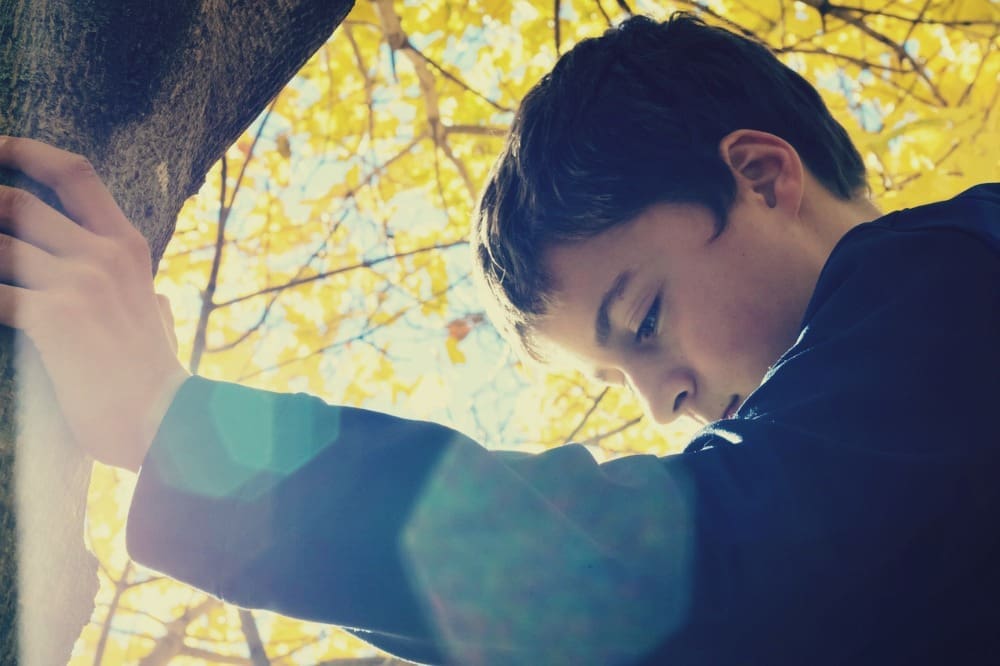Life’s too short to sweat the small stuff isn’t it? It’s what adults often say to each other. But a child’s attitude to the ‘small stuff’ is often a different matter. This is an observation that a dad made on a course I ran a while ago: Children do ‘sweat the small stuff.’
One parent I worked with recently, just could not understand why her four-year-old son made such a huge fuss because his biscuit was broken. She offered him another biscuit, but he would have none of it. What could she do, she couldn’t exactly stick the broken biscuit back together could she?
This little story made me smile, it reminded me of the time when my son, then around the same age was inconsolable one day because his Batman pants were in the wash. You would have thought his little world had just ended.
There’s no doubt, children can get very emotional very quickly about seemingly unimportant things. It might not seem like a good idea to pander to this, and to bend over backwards to make everything right for them all the time, but it is important to listen. Patience and empathy on your part will help your child to feel that their emotions are valid, which they are, they really do feel upset/disappointed or whatever it is.
Most parents are not surprised when their two-year-old gets upset about small things, it is accepted that this behaviour is not at all unusual for a child of this age. But it is not uncommon for older children to get very emotional when something is not right. Being able to regulate our emotions, delay gratification, and respond appropriately to life’s ups and downs, are skills that take time to develop, and some children will need more support than others. But there is plenty you can do to encourage these skills in your child.
Teaching Kids How to Deal With Disappointment.
Here are a couple of simple, easy to remember ideas.
-
Acknowledge emotions
Try to follow these steps next time you have an emotional child on your hands:
Name the problem: ‘Your sister has trodden on your Lego model again.’
Acknowledge the feeling: ‘That must be upsetting.’
Let your child talk or ‘rant’ if that is what they need to do.
Keep on listening for as long as it takes, don’t feel you have to say much or ‘fix’ the problem.
Validating your child’s feelings in this way will help your child to feel that you really care and understand what they are going through, and can help to prevent the emotional behaviour from escalating.
-
Encourage problem-solving
Ask your child if they can think of a solution, ‘What do you think you could do to stop this from happening?’
Brainstorm some different solutions. Support your child to do this.
Agree on the best solution: ‘So it’s agreed that you will play with your Lego at the other end of the sitting room, where no one is going to be walking past.’
Try out the solution. Remind your child to put the plan into action.
Review the plan at a later time. Talk to your child about whether the solution to the problem has worked, and if so why? If it has not worked, why is that, what could be done differently?
Encouraging your child to come up with their own solution to a problem (with your support) is a more useful approach than just fixing the problem for them. When they walk out the door as a young adult, you want to know that they can deal with the problems that life throws at them.
-
Be a Role Model
Children learn a lot by watching others and it is a good idea to let them see you solving problems in this way: ‘Kid’s, the film is all booked up on the day we want to see it, shall we go another day, see a different film or do something else instead?
Be aware that children develop different skills at different rates. You may have a bright child who appears to be ahead when it comes to reading and learning, but that does not necessarily mean that they will be up to the same speed in their emotional development.
If there is not an answer to the problem, the biscuit really is broken, or the Batman pants really are in the wash, then your child will need to learn that sometimes there will be disappointment.
Just stay calm and be there for them while they ‘sweat the small stuff.’
About the Author: Jane Rogers
 Jane Rogers is founder of The Cambridge Parent Coach. She is experienced in running a number of highly regarded parenting courses, and writes and runs her own workshops for parents. Jane is passionate about Positive Parenting and her aim is to share the ethos and ideas of this style of parenting in a way that is simple to understand, and easy to put into practice. Jane’s two parent workbooks: ‘How to Encourage Good Behaviour so You Can Enjoy You Children’ and ‘How to Use Positive Discipline to Improve Your Child’s Behaviour’ are available on Amazon
Jane Rogers is founder of The Cambridge Parent Coach. She is experienced in running a number of highly regarded parenting courses, and writes and runs her own workshops for parents. Jane is passionate about Positive Parenting and her aim is to share the ethos and ideas of this style of parenting in a way that is simple to understand, and easy to put into practice. Jane’s two parent workbooks: ‘How to Encourage Good Behaviour so You Can Enjoy You Children’ and ‘How to Use Positive Discipline to Improve Your Child’s Behaviour’ are available on Amazon


Great article! We’ve found that teaching some self-calming strategies in advance can also help. Practicing strategies like counting to 3 or taking calming breaths can help children de-escalate themselves.
Ari thank you for sharing this! Yes – an upset brain is a busy brain and it can’t always remember what it needs to, unless the strategies have been well-practiced first. You’re so right about the helpfulness of teaching the strategies in advance.
Great article, thank you so much. My daughter does this often, mostly in the afternoon when she is exausted from the long day in kindergarden (where she does not sleep, beause she “doesnt want to miss something”- her words) and every little thing can make her “loose it”.